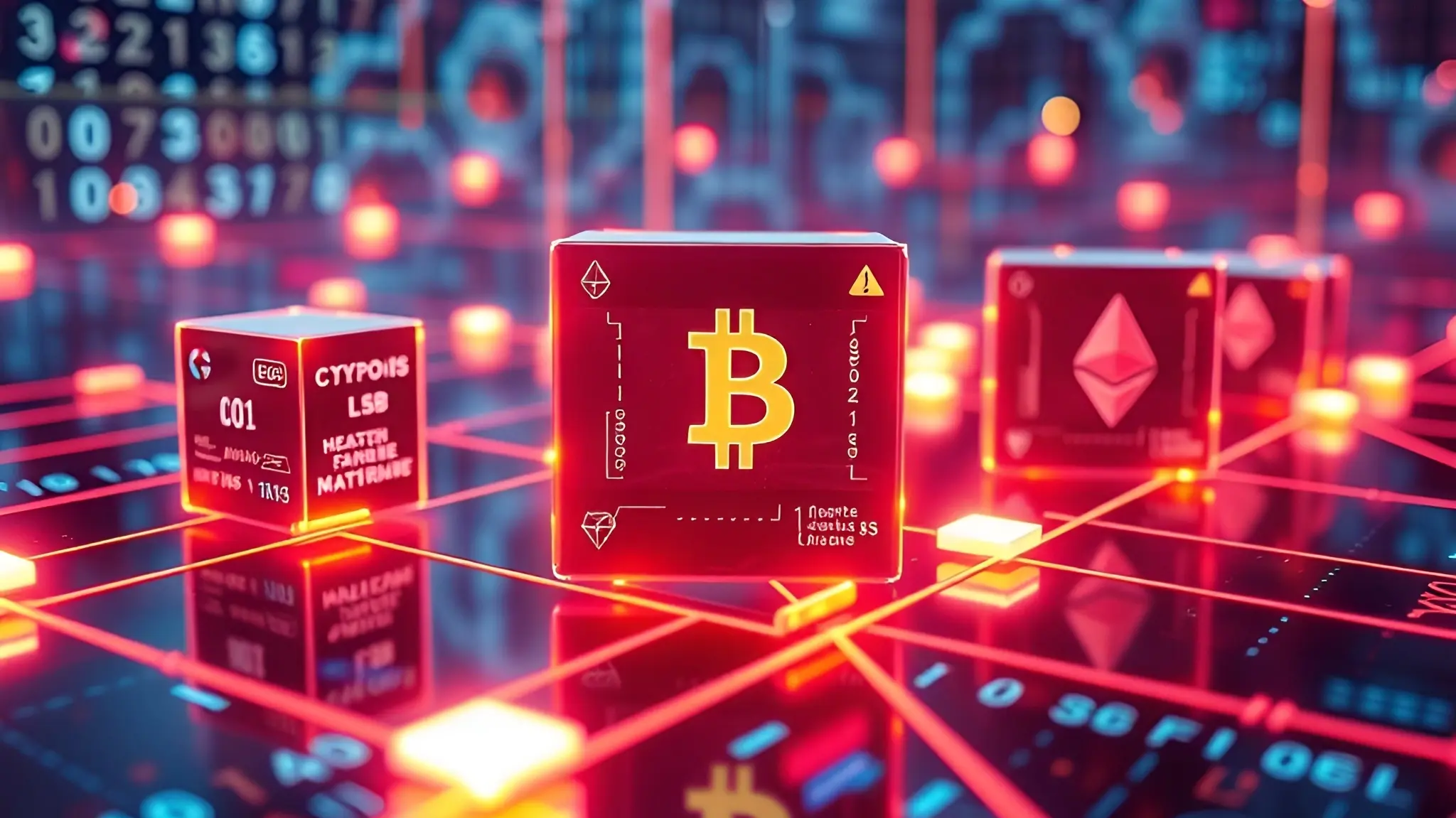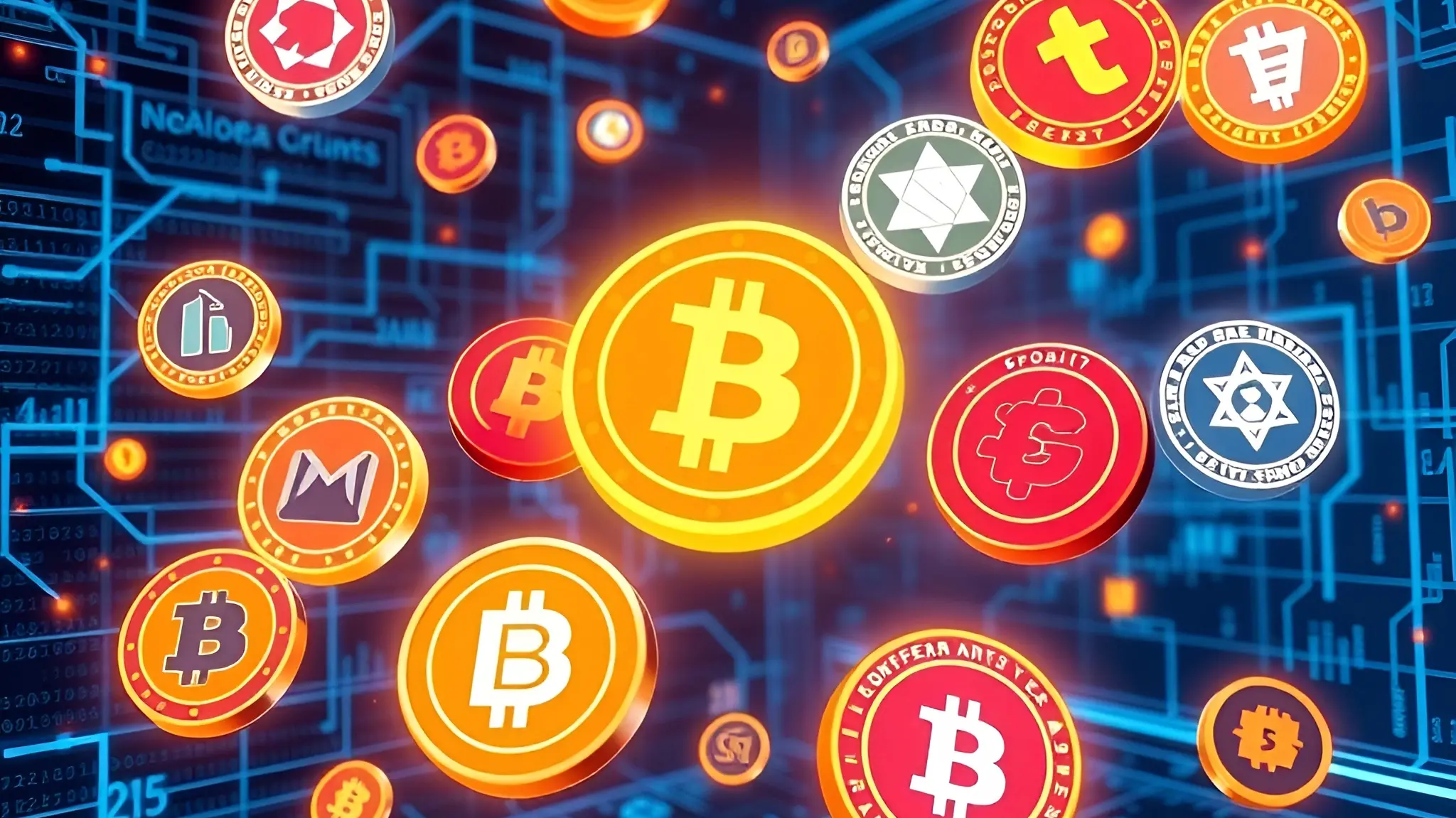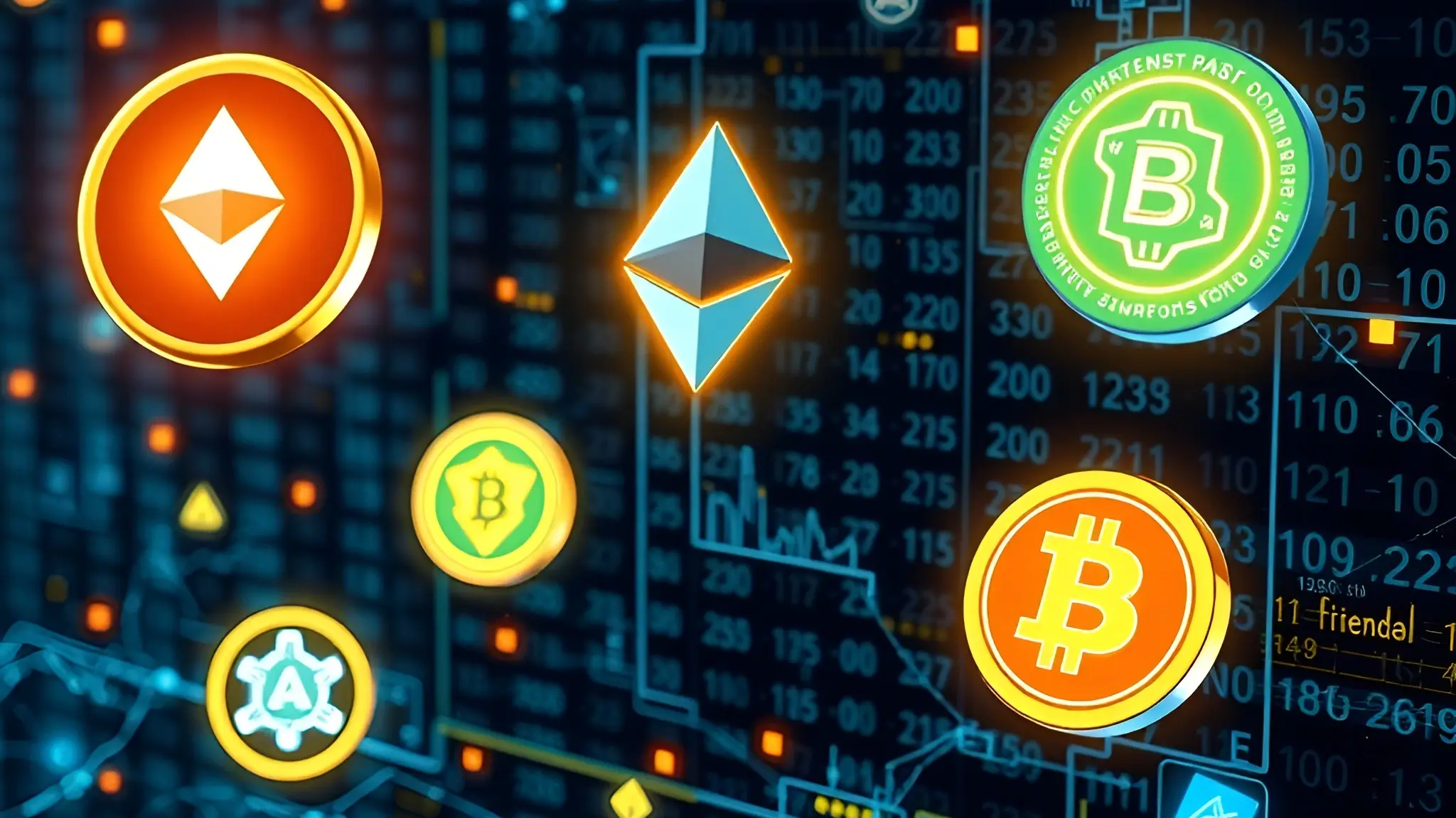What is Token?
Today, the term “token” is often thrown around, yet it remains a source of confusion for many. What exactly is a crypto token?
At its core, a token is a digital asset built on an existing blockchain, driving innovation from decentralized apps to real-world asset ownership.
This article explores what crypto tokens are, how they differ from cryptocurrencies, their various types, and some real-world use cases.
Key Takeaways:
ShowCrypto Token Definition
In the broadest sense, a “token” in the cryptocurrency world is a digital asset that exists on top of a pre-existing blockchain.
While “cryptocurrency” and “token” are often used interchangeably, they actually differ in key ways.
A cryptocurrency—like Bitcoin or Ethereum—is the native asset of its own blockchain, whereas a token is built on an existing blockchain (for example, a token that’s built on the Ethereum network).
Tokens can represent many things—ownership in a project or organization, membership rights, voting power, access to a product or service, or even fractionalized ownership of a real-world asset.
In many cases, tokens are created to serve specific purposes: fueling decentralized applications, representing shares of a company, enabling new types of fundraising, unlocking features in a blockchain-based game, and so on.
A Brief History of Tokens

The concept of issuing new assets on top of an existing blockchain became more popular as developers recognized the limitations of earlier cryptocurrencies like Bitcoin.
Ethereum led the charge with its smart contract capabilities, allowing developers to write code that would deploy user-defined tokens.
By 2017, projects commonly launched what were called “ICOs” (initial coin offerings) to raise funds by selling newly created tokens.
During this “ICO boom,” countless startups worldwide experimented with token-based fundraising.
While many were legitimate, quite a few turned out to be scams or projects that failed to deliver, eventually prompting heightened regulatory scrutiny.
After the ICO bubble burst, new methods of token fundraising (e.g., IEOs—initial exchange offerings) emerged, while regulators reminded exchanges and projects that tokens often qualify as securities, requiring legal compliance.
Today, token creation remains extremely popular. From decentralized finance (DeFi) to gaming, metaverse, and tokenized real estate, the variety of token use cases has grown significantly—though so too has the emphasis on clearer regulation.
Key Types of Crypto Tokens

1. Utility Tokens
Utility tokens grant holders the right to use a particular application, product, or service. Instead of merely acting as digital money, they let you “unlock” something else.
During an initial coin offering, these tokens are often sold to raise funds for new ventures. Once issued, utility tokens might allow you to:
- Pay for services on a decentralized platform (e.g., cloud storage, AI services).
- Access specialized features on a blockchain-based application (e.g., in gaming or social media apps).
- Receive discounts or other benefits tied to the project’s ecosystem.
Example:BNB (originally on Ethereum, now on Binance Chain) began as a utility token to pay discounted fees on the Binance exchange.
2. Security Tokens
Security tokens represent ownership or an interest in an external, tradable asset—much like a digital version of stock certificates.
They typically come under stricter regulatory rules because they promise a share of future profits, dividends, or governance rights akin to corporate stock.
Example: A token that represents a fraction of ownership in a company, piece of real estate, or other investment.
3. Commodity Tokens
Commodity tokens are linked to commodities like gold, silver, coffee, or even oil.
By “wrapping” these real-world assets into a token, it becomes easier to buy, sell, and trade them on blockchain-based marketplaces. This can provide new levels of liquidity and transparency.
Example: Tokens pegged to precious metals (e.g., Tether Gold or PAX Gold) representing ownership of real gold stored in vaults.
4. Non-Fungible Tokens (NFTs)
Non-fungible tokens are one-of-a-kind digital assets. Unlike typical cryptocurrencies—where one unit is interchangeable with another—NFTs are unique. Each NFT has distinct metadata that identifies it as different from all the rest.
Examples: Collectible digital cats (CryptoKitties), each with unique traits, on Ethereum. Or, an individual pieces of art (Digital art NFTs) minted on a blockchain (e.g., on platforms like OpenSea or Foundation).
How Tokens Work on a Blockchain

1. Smart Contracts
On blockchains like Ethereum, tokens are typically governed by smart contracts. These self-executing programs outline token distribution, transactions, and usage rules.
They also automate tasks like releasing dividends, transferring tokens, or allocating rewards.
2. Token Standards
Blockchains often have established standards to simplify token creation. On Ethereum, the ERC-20 standard is commonly used for fungible tokens, while ERC-721 and ERC-1155 standards govern many NFTs.
3. Network Fees
Even though tokens are built on an existing blockchain, you still need that blockchain’s native coin (e.g., ETH on Ethereum) to pay transaction fees (often called “gas” fees).
4. Access and Ownership
Tokens live in crypto wallets, just like coins. Holders typically use a wallet app (e.g., MetaMask, Trust Wallet) to manage and transact with tokens—transferring them, staking them, voting on governance proposals, etc.
Common Use Cases for Tokens

1. Fundraising Through ICOs or IEOs
Projects can raise capital by selling newly created tokens to early supporters. In return, buyers may get early access to the platform, voting rights, or the prospect of price appreciation.
2. Governance and DAOs
Governance tokens let holders vote on proposals in a decentralized autonomous organization (DAO).
This “community-driven” approach fosters user alignment and decentralizes decision-making.
A well-known example is Uniswap’s UNI token, which gives holders the power to vote on changes to the Uniswap DEX protocol.
3. Staking and Rewards
Some tokens provide rewards simply for holding (staking) them in a designated pool. This could be additional tokens, a share in the project’s revenue, or a portion of the network’s fees.
4. In-App or In-Game Currencies
Games and virtual worlds, often referred to as the “metaverse,” use tokens as a native means of trade and ownership.
For instance, you might use Decentraland’s MANA token to purchase virtual land or items within the Decentraland platform.
5. Asset Tokenization
Real-world items—art, real estate, classic cars—can be turned into blockchain-based tokens.
This process of “tokenization” can lower the barrier to entry, giving more people the chance to own fractional shares of high-value assets.
Risks and Considerations
1. Regulatory Risks
Depending on jurisdiction, a token might be legally treated as a security, requiring compliance with securities laws. Projects that fail to register or disclose information may be shut down by regulators.
2. Scams and Fraud
Tokens are relatively easy to create, so beware of fraudulent ICOs or IEOs. Whitepapers can be misleading, the project’s team might be anonymous or unverified, and the promised use-case might sound too good to be true.
3. Volatility
The value of a token can swing wildly. Prices can plummet if the project fails to deliver or if regulatory enforcement disrupts operations.
4. Market Liquidity
Many tokens trade on unregulated platforms with varying levels of liquidity, nor market caps. This can make it hard for investors to exit their positions without large price impacts.
Tokens in Cryptocurrency World
Crypto tokens add tremendous flexibility and innovation to the blockchain universe.
They range from purely functional “utility tokens” used to access products or services, to “security tokens” representing ownership of real-world assets, to “NFTs” denoting unique digital collectibles.
By building on top of robust blockchains like Ethereum, projects can create specialized tools, reduce development costs, and tap into a ready-made global user base.
At the same time, the ease of creating tokens brings risks in the form of scams, speculative bubbles, and unclear regulatory status.
As you explore tokens—whether from an investment perspective or for using a decentralized application—always investigate the team behind the project, read the token’s whitepaper carefully, and keep in mind the relevant regulations in your jurisdiction.
Overall, crypto tokens are a powerful innovation that underpins many fast-evolving areas of Web3, including decentralized finance, gaming, art, supply-chain management, and more.
They show how blockchain technology can go far beyond simple payments, ultimately transforming how we own, trade, and use digital (and even real-world) assets.
Frequently Asked Questions (FAQs)
What does it mean to be a token?
To be a token in the context of cryptocurrency means being a digital asset that exists on top of an existing blockchain. Unlike cryptocurrencies, which are native to their own blockchain (e.g., Bitcoin on the Bitcoin blockchain), tokens are built using the infrastructure of another blockchain, like Ethereum. Tokens can serve various purposes, such as representing ownership, access rights, or governance within a blockchain ecosystem.
Is a token a gift?
Not necessarily. A token is not inherently a gift; it is a digital asset that can be bought, sold, earned, or distributed in various ways. However, tokens can be gifted, much like any other asset, depending on the context. For example, in promotional events, tokens might be given as rewards or incentives.
Which is the best crypto token?
The “best” crypto token depends on your specific goals and interests. For instance:
- Ethereum-based tokens like UNI (Uniswap) are popular in decentralized finance (DeFi).
- Utility tokens like BNB (Binance Coin) are widely used for transaction discounts and more on Binance.
- NFTs (non-fungible tokens) appeal to collectors and artists.
Choosing the best token requires assessing factors like utility, security, team credibility, and your personal investment or usage goals.
Is Bitcoin a cryptocurrency or a token?
Bitcoin is a cryptocurrency, not a token. It is the native asset of its own blockchain, the Bitcoin blockchain. In contrast, tokens are typically built on existing blockchains like Ethereum or Binance Smart Chain and do not have their own independent blockchain infrastructure.

